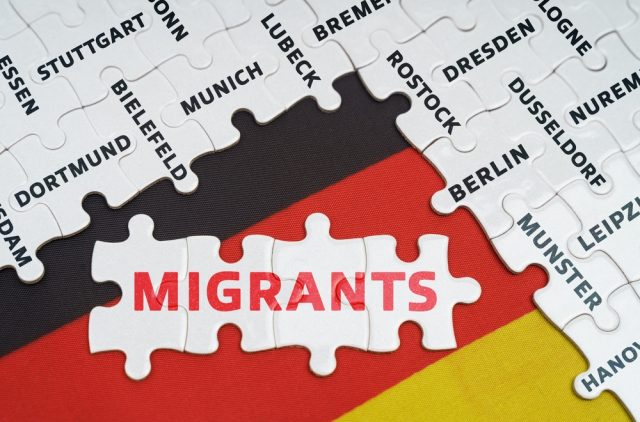
Germany closes its borders: is it all about public security?
Germany has recently decided to step up its control measures for irregular immigration, announcing the introduction of stricter controls along all of the country’s land borders, starting in September of this year and lasting for a period of six months.
This move by the center-left government led by Chancellor Olaf Scholz (SPD, S&D) aims to more effectively combat irregular migration flows and protect the population from alleged threats of “Islamic extremism”. The new measures include systematic checks at border posts and random checks carried out by the federal police. The government has stressed the need for these measures due to the unsustainability of municipalities in providing services and accommodation.
This move would appear to be intended to save his image in view of the legislative elections scheduled for 2025.
Scholz apparently trusted in an alliance between the Christlich Demokratische Union (CDU, EPP) and the Bavarian twin party Christlich-Soziale Union (CSU, EPP) interrupted by a sudden backtracking by the Democrats. There are many concerns raised by Europe: Brussels is asking for explanations while Poland and Hungary have openly declared themselves against the agreement reached last July on the regulation of the migration crisis.
However, Chancellor Scholz has called the agreement “a historic turning point” According to estimates there are in fact more than 12 million residents in Germany without citizenship, and the new law aims to regularize the so-called Gastarbeiter or “guest workers”. Interior Minister Nancy Faeser said the aim of the decision was “to fight illegal immigration” and “to stop criminals and identify and stop Islamic extremists in advance”.
The right-wing German AfD (ESN) has interpreted the new measures as a victory for their political agenda as well: immigration control is one of the main points of the AfD program and the government’s recent decision legitimizes their position. The AfD is reportedly gaining ground both in the elections of some states (in Saxony it obtained 30.6%, in Thuringia 32.8% becoming the largest party, in Brandenburg the polls estimate them between 28 and 30%) and in opinion polls, which suggests a strong consensus among voters for anti-immigration policies.
Outside of Germany, support was unanimous: in France, the Rassemblement National (RN, PfE) sees it as an opportunity to relaunch its anti-immigration campaigns, while in Italy, Matteo Salvini’s Lega (LSP, PfE) has stressed the need for greater security at European borders.
Obviously, this decision by the German government provides for a temporary suspension of what were the better-known Schengen agreements that provided for measures for free movement. The reinstatement of controls inevitably also involves economic costs that the country will have to face, impacting both trade and the tourism sector. In this regard, Scholz in his speech to the Nation recalled how Germany is a country marked by a sad twentieth century and from which he absolutely distances himself, cosmopolitanism and intercultural exchange remain primary in its politics: “We are a country that offers protection to those who are politically persecuted, who run to save their lives, who must save their lives, and this is written in our Constitution and we do not question it”. However, these measures, although apparently rigid, were taken to preserve the interests and security of the German people.
Germany is currently grappling with the complex task of effectively managing immigration and integration. The potential repercussions of border closures and increased deportations include heightened social and humanitarian tensions. Conversely, expediting the naturalization process and acknowledging the contributions of migrants toward the country’s development are steps toward fostering greater inclusivity.
It is imperative to strike a balance between national security and human rights, as well as between preserving national identity and embracing cultural diversity. Germany must adopt a pragmatic and forward-thinking approach to address the challenges presented by demographic shifts and migration dynamics. This involves advocating for equal access to education and employment opportunities for all citizens, irrespective of their backgrounds.



 Subscribe
Subscribe